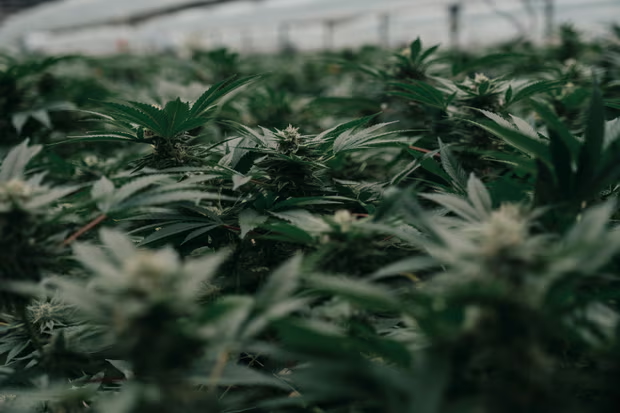In a groundbreaking development that could reshape the landscape of American drug policy, the Biden administration is on the brink of reclassifying marijuana as a less dangerous substance, according to multiple credible sources.
For more than five decades, marijuana has languished under the strict Schedule I classification, alongside notorious drugs like heroin and ecstasy. However, the winds of change are blowing as the US Drug Enforcement Administration (DEA) sets its sights on downgrading cannabis to Schedule III, aligning it with substances deemed to have a lower risk profile, such as ketamine and certain anabolic steroids.
This proposal, which has generated widespread anticipation and debate, represents a seismic shift in federal drug policy.
It underscores a growing acknowledgment of marijuana’s potential medicinal benefits and its comparatively lower potential for abuse when weighed against other controlled substances.
While the reclassification does not translate to nationwide legalization for recreational use, it holds the promise of broadening access to medical marijuana and bolstering the burgeoning cannabis industries in states where it is already legal. If finalized, this move could mark a significant stride forward in dismantling barriers to medical research and patient access.
President Joe Biden’s call for a comprehensive review of federal marijuana law in 2022 laid the groundwork for this historic moment. His subsequent actions, including the pardoning of thousands of Americans convicted of minor marijuana offenses, underscore a commitment to rectifying the injustices perpetuated by outdated drug policies.
The proposal has not been immune to criticism, with concerns raised about the potential ramifications of reclassification. Some argue that marijuana remains a possible “gateway drug,” while others highlight the continued threat of federal prosecution for violations of Schedule III regulations.
Nevertheless, public sentiment appears to be shifting in favor of marijuana reform. A Gallup poll conducted last fall revealed that an overwhelming 70% of adults support legalization, reflecting a significant increase from previous years.
As the DEA presses forward with the regulatory process, including public comment and administrative review, the nation eagerly awaits the outcome of this pivotal decision. Regardless of the final ruling, the proposal signifies a momentous step towards modernizing drug policy and addressing the evolving landscape of cannabis regulation in the United States.
At the heart of this debate lies a fundamental question: How should society approach the regulation of marijuana, a substance that has long been entangled in a web of stigma and misinformation?
Proponents of reclassification argue that marijuana’s Schedule I status has hindered scientific research and impeded access to potentially life-changing treatments for patients suffering from a variety of medical conditions. By acknowledging its medicinal value and adjusting its regulatory classification accordingly, they contend that the DEA can pave the way for more robust research and responsible use.
Opponents, however, express reservations about the potential consequences of reclassification, particularly in terms of public health and safety. They caution against sending a message that marijuana is harmless or benign, citing concerns about increased usage, impaired driving, and the potential for addiction, especially among young people.
In navigating this complex terrain, policymakers must strike a delicate balance between promoting public health and respecting individual liberties.
The reclassification of marijuana, if done thoughtfully and with appropriate safeguards in place, has the potential to reconcile these competing interests and chart a path forward that prioritizes evidence-based policy and harm reduction.
As the Biden administration moves closer to realizing this long-awaited policy shift, stakeholders from all sectors – including healthcare professionals, law enforcement officials, industry representatives, and advocacy groups – must engage in constructive dialogue and collaboration to ensure that the regulatory framework ultimately serves the best interests of the American people.
In the final analysis, the reclassification of marijuana represents not just a regulatory change, but a symbolic moment in the broader struggle for social justice and equity. By challenging outdated perceptions and embracing a more rational approach to drug policy, the United States has an opportunity to lead by example and set a new standard for evidence-based, compassionate governance.
Only time will tell what the future holds for marijuana regulation in America. But one thing is certain: With each step forward, we inch closer to a more equitable, enlightened, and compassionate society – one where the promise of progress is matched only by our collective resolve to build a better tomorrow.
In the words of President Biden, “It’s time that we right these wrongs.” And with the reclassification of marijuana, we take one step closer to realizing that vision.










